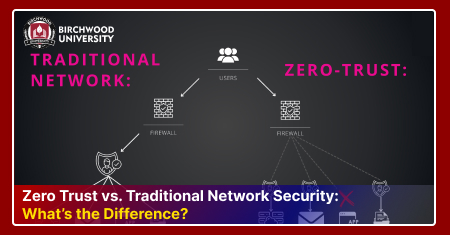The field of data science is expanding rapidly offering numerous opportunities and many unrealized potentials. The job market in the data science discipline is projected to increase dramatically over the next seven years, as per the emerging jobs report by LinkedIn. The data is stipulated at $230.80 billion in 2026 from 2019’s rate of $37.9 billion.
The Data Science career path is poised to offer a great spot for professionals
looking for a long-term career. Selecting a new career choice may be difficult, yet developing and putting into action an effective educational strategy and roadmap will lessen the complexities of venturing into a new professional path.
In this article, we will focus on the information required to develop a good data science career path. We will identify a proper plan, and go through the requisite skills and the right track to follow to become a data science professional.
Understanding Data Science Career Path
To be a successful Data scientist, following a strategic roadmap is essential. By analyzing data to find important insights, a data science professional combines ideas from software engineering, statistics, and the business sector. To assist you in learning and mastering the skills required for a data scientist, we will discuss a comprehensive career path.

Skills required for a Data Scientist
To lay out strategic planning, knowing about the skills required for a data scientist is critical. Let us delve into the skills in detail.
1. Statistics & Probabilities
The primary objective of data science is to analyze data and derive knowledge, insights, and knowledge-based decisions by using sophisticated methods, algorithms, or systems. In such phenomena, the components of data science such as drawing conclusions, estimating, or making predictions become crucial. Making predictions for additional analysis with the help of statistical tools is facilitated by probability. The theory of probability serves as a foundation for most statistics. Having a comprehensive of statistics and probability is an essential data science skill.
2. Linear algebra and multivariate calculus
A variety of predictors or unknowable variables are used to generate a bulk of data science and machine learning models. A deep understanding of multivariate calculus is necessary to build a machine learning model.
3. Software, Packages, and Programming
Data science is fundamentally programming. Hence, programming skills for data science assemble all the core abilities required to convert unprocessed data into useful insights. Although there isn’t a set rule for choosing a programming language, Python and R are rapidly becoming the most popular choices among data scientists and programmers.
4. Data Wrangling
Often the aggregated data of firms are not suitable or the best fit for modeling. So, it is crucial to comprehend and be knowledgeable about how to handle data flaws. The process of converting and translating raw data from one form to another to prepare the data for insights is Data Wrangling. Essentially it is a process involving gathering data by blending pertinent fields and cleaning the data.
5. Machine Learning with Artificial Intelligence
To integrate tools and approaches in various logic, decision trees, etc., one needs to have a thorough understanding of machine learning and artificial intelligence. Any data scientist who possesses these skill sets will be able to work on and resolve difficult challenges that are specifically created for forecasts or for choosing future objectives. Individuals who have these abilities will unquestionably stand out as knowledgeable professionals. With the use of machine learning and AI principles, a person can work on different algorithms and data-driven models all while handling massive data sets, such as cleaning data by decreasing redundancies.
6. Deep learning with Natural Language Processing
The accuracy of its delivery of DL is the main factor in deep learning’s effectiveness with NLP. One must realize that deep learning is an art form that necessitates a particular set of tools in order to display its brilliance. In other words, it necessitates the use of such algorithms, which require computers to comprehend human languages. In order to be a skilled data scientist, you must be well-versed in a few programming languages, such as Python and Java, and it also helps computers to grasp natural language.
Different Data Science Career Path
The data science field offers a wide range of career paths and possibilities. It’s perfectly normal to be uncertain about what each role entails or which career path would be best for you.
Below is the various data science career path that prospective candidates can venture into after fulfilling all the necessary qualifications:
• Data Analyst
• Data Scientist
• Data Manager
• Data Architect
• Data Engineer
• Business Analyst
• Statistician
• Data Modeller
Steps for a Data Science Career Path
Acquire the fundamental skills
The first step of a data science career path is to acquire all the necessary skills to kickstart your career in the field. Data science may be a specialized field, nevertheless, it is pursuable by any capable and interested candidate. The skills required for a data scientist are easily attainable and accessible to both experienced as well as freshers in the field. Programming, Statistics, and Mathematics form the core foundation of data science. Those who are proficient in one or more of these three fields can readily make the switch to data science. For some people, the roadmap can be a little bit shorter and slightly different. Learning the fundamentals in the three aforementioned categories is where the road map for everyone else starts. Understanding the basics of arithmetic and statistics can help you comprehend data science ideas better, and learning the basics of programming will make using different tools easier.
Push your abilities to Advanced-levels
Having learned the basics, you may want to advance into higher skills by signing up for a Master of Science in Data Science course. This higher-level training will help you in specializing with the necessary and appropriate skills and apply your skills to practical real-world projects.
Gain mastery in One particular Area
To establish a career in the field of your choice, you must first select from the numerous specializations like Business Intelligence, Data Analytics, Big Data, NLP, Computer Vision, Machine learning, etc. The next step is to do thorough research, then make a decision on how to best move forward.
Pursue Internship and Begin with Entry-level Positions
Internships open up numerous opportunities to not only leverage your accumulated knowledge into practical job tasks. You get to network with peers and professionals hustling with the same goals and interests which will boost your motivation. Working on projects using real-world data can help you develop your theoretical skills. Keep in mind that businesses have a tendency to value actual applications over academic understanding.
Data science is a booming field poised to give professionals a promising future. Kickstart your
master of science in Data science course today and enter into this challenging, dynamic, and
ever-evolving field of profession.








